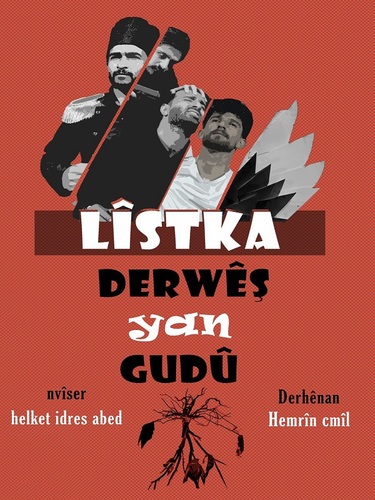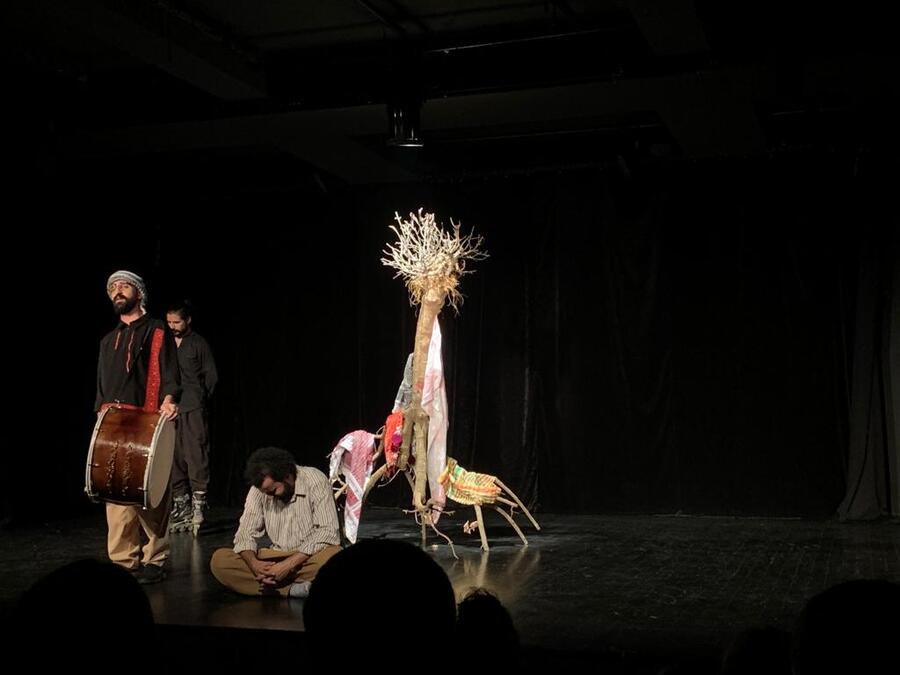Inan Eroglu
On September 5, the theater group of Duhok University students performed the play “Darwesh or Godot” in Amed. The play is directed by Hamrin Jamil and written by Halkawt Idris Abed.
A theater that puts a theater within the theater; we already have a bunch of actors who want to act in a theater. The ambiguity of the play begins here. Will they present "Waiting for Godot" by Samuel Beckett or the Kurdish love story and folklore of Darwesh Avdi?
This incomplete and unsolvable dilemma leads to the ultimate question: what is going on and what do the actors want to do? The theater is metafictionally set and makes several layers outside the stage the most important part of theater: the actors who interact with the audience, the audience who becomes an actor, the person who is responsible for lighting the play who always asks “Do I light”, works on the play and establishes an element of disruption (but that light is not there and increases at the end), the playwright’s texts are always reinterpreted and disrupted.
A strong message in the theater revolves around "redemption." Is there anyone who can save us from this situation and who will this savior be? This question, which has been asked since the time of Ahmad Khani, asks these questions about a fictional/foreign hero and a real/mythical Kurdish hero in Darwesh or Godot. But is it possible any of the Saviors not be there? That's possible. The play shows us that neither an imaginary savior nor the dead can come to us. But who is this Savior, and when will they come? He didn't come today. Today, too. Today.

The tree, which is the main decor (now the main actor) of the theater and symbolizes redemption, has its head in the ground and its roots up above. This real upheaval also fits our Kurdish situation and life: everything we have is violated, even our savior. Otherwise, who will save the "Savior"? Another savior? Where is it? The actors always walk around the tree, looking at it with a divine eye, saying prayers. “Godot is not coming today too,” says an actor. The actor, who was sitting in the audience and joined in the middle of the play, appears at the end of the play with an extra light in the heart of a savior, and when all the other actors have gathered around him, the play ends. In this way, the theater gives a message of hope: the Savior we are waiting for is coming and he is not so far away, he is right in front of us, among us.
Another aspect of the play is about Kurdish brotherhood and Kurdistan unity. The play, which begins with a taking hands scene, takes us to a conflict between two friends, one of whom wants to kill the other. This murder will never happen. Both are waiting for redemption. Two actors who first play good and bad angels end up in the same situation and refer to some old words and events in Kurdistan's history. When they were captured by the British soldiers, one of them said something that is often attributed to Qazi Mohammad today: "Kurdistan is one country and won't be four." With this sentence, the play highlights the British attitude towards the Kurds and the division of their country in Lausanne.
At the Darwesh or Godot theatre, music was also one of the elements, and Kawar Art gave a magnificent look to the theater with his voice and drums. At a time when most of our theaters in the northern part of Kurdistan are translations from foreign languages, the presence of such theater artists who rely on original Kurdish texts and talk about the four parts of our country will increase attention and have a good impact on the Kurdish language and Kurdish theater. They make the space for better theaters. We hope to see more theaters in other parts of Kurdistan, as well as in the North.









